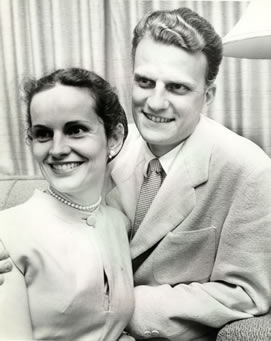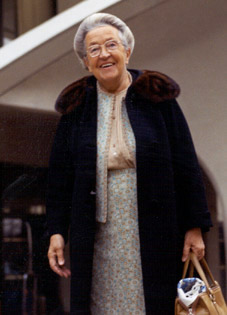At the King's Pleasure

by Dennis Pollock
In a political flap during the administration of George W. Bush, Democrats were up in arms over the dismissal of eight United States attorneys. Claiming the firings were entirely political they clamored for the job of Attorney General Alberto Gonzalez. The Attorney General, along with others who represented the White House, insisted that this was a non-issue, primarily because U. S. attorneys serve “at the pleasure of the President,” and can therefore be hired and fired at will, regardless of reasons or motivation.
The term “at the President’s pleasure” has quite a history behind it. The founding fathers debated over its use in various legal documents. It is actually a carryover from English law, which is replete with references to “at the king’s pleasure.” The first known use of the term has been found in documents from the year 1275, and it essentially refers to legal favors given or withheld at the sovereign will of the reigning monarch. In other words, people could be jailed or freed, judges installed or dismissed, and petitions granted or denied simply because the king wanted it that way.
Every Christian should readily recognize a spiritual parallel to the idea of serving at the king’s pleasure. This is precisely the nature of our service to Jesus, the King of kings. We do not enter the kingdom of God and start making demands and decisions about the nature of our lives and our service to Christ. Our posture is not that of saying, “Here’s what I want to do,” but rather, “Lord, what would you have me to do?” Christianity is no democracy. To receive Christ is to voluntarily surrender the right to rule our lives. We have no vote, no say, and not even the right to complain when the course of our lives takes a turn we neither expected nor wanted.
The Nature of our Service
Any man or woman that has tasted the new birth yearns for service. Though that yearning cannot be fully explained or understood, it is as real to us as the desire for food in the physical realm. The Scriptures tell us that we are all called to do works “which God prepared beforehand.” To equip us we are given gifts of the Spirit, but we are never consulted about which gifts we might be interested in. After listing various gifts of the Spirit, Paul writes, “But one and the same Spirit works all these things, distributing to each one individually as He wills.”
 Billy Graham’s wife, Ruth, grew up in China in a missionary family. She was a deeply spiritual young lady and early on determined to become a missionary. When she attended Wheaton College it was with the expectation that she would become equipped for missionary service and then go to Tibet as a missionary.
Billy Graham’s wife, Ruth, grew up in China in a missionary family. She was a deeply spiritual young lady and early on determined to become a missionary. When she attended Wheaton College it was with the expectation that she would become equipped for missionary service and then go to Tibet as a missionary.
Then she met Billy. She was attracted to his good looks, his dynamic personality, and his deep passion for Christ and for preaching. But as they became serious about each other she realized he was not the typical missionary husband she had envisioned for herself. Billy seemed far more interested in preaching in evangelistic events in the U. S. than in laying his life down in quiet service in some small village in a foreign country. It soon became apparent that if she were to marry Billy she would need to give up her dream of being a missionary and give herself fully to being Billy’s wife and a supporter of his ministry. “I will slip into the background,” she wrote in her journal, “In short, be a lost life. Lost in Bill's.”
In the early days this meant sitting on the living room floor clipping out relevant articles from the newspapers to be included as illustrations in his sermons. Often it seemed that the responsibility for the raising of their children was almost solely her domain. Dirty diapers in the early years, teenage attitudes in the later ones, and cheering up Billy in times of discouragement – this became her ministry.
What a service Ruth did for the body of Christ with her willingness to defer her dreams and hopes to God’s plan for her life. She is now in heaven and I doubt she has any complaints. The Head of the body of Christ knows where His members can best function. She lived her life at the King’s pleasure.
The Degree of Activity
Christians are often under the impression that activity is the barometer of success in Christian ministry. The man or woman who is constantly on the move ministering to thousands, preaching, writing, and traveling must surely be the ultimate in successful ministry. Those who lead a quieter and less busy life must be doing something wrong. And when we find ourselves locked into such a situation by circumstances we can wonder why God doesn’t provide more opportunities for us, why He “wastes us” by hedging us into such a circumscribed life.
The prime example of a man who knew both such lifestyles was the apostle Paul. In the early phases of his ministry he seemed to be all action. As he traveled from city to city, he led thousands to Christ, planted churches all over the Middle East, healed the sick, suffered persecution and stonings, and was constantly on the move. Had it been up to us, we would have wished Paul to have thirty or forty years of such productive ministry.
Such was not the case. Strangely, as Paul was making his way to Jerusalem to celebrate the Passover, he started getting hints that his days of non-stop activity were coming to an end. He declared: “The Holy Spirit testifies in every city, saying that chains and tribulations await me.” Paul was not wrong. At Jerusalem he was arrested and imprisoned, and his times of travel and church planting came to a screeching halt. Paul responds to his new circumstances by doing what he can do – not fretting about what he cannot. He entertains visitors with magnificent teachings on the doctrines of grace, he writes his “prison epistles” which have blessed the world for two thousand years, and he communes with God. It was neither his desire nor his decision to go to prison; his was simply to flow with the will of the One who had said at the outset of his Christian experience: "I will show him how many things he must suffer for My name's sake.'' He served at the King’s pleasure.
Another example of one who was forced into a less active mode can be found in the life of Joni Eareckson Tada. As a teen Joni became paralyzed through a diving accident. This athletic, active young lady was forced by circumstances into a wheelchair where she has now been for decades. In her humanity she experienced frustration and anger in the early stages, but eventually reconciled with this unsought and unwanted direction in her life. As she began to cooperate with the will and purposes of God, she found doors opening for ministry – doors she would never have seen apart from the accident. Today she has a major ministry and has produced far more kingdom fruit than most walking women could see in a dozen lifetimes.
The Length of Our Service
Not only are the nature of our ministry and the degree of our activity in the hands of our great King, but so also is the duration of our service. Our times are truly in His hands.
 One of the most effective woman evangelists of the twentieth century was the indefatigable Dutch lady, Corrie Ten Boom. Corrie and her sister Betsy were both placed in the concentration camp, Ravensbruck, during World War II, where they suffered terribly. Living on thin soup in flea infested barracks, and forced to do labor beyond their capability, the sisters lived with death constantly staring them in the face.
One of the most effective woman evangelists of the twentieth century was the indefatigable Dutch lady, Corrie Ten Boom. Corrie and her sister Betsy were both placed in the concentration camp, Ravensbruck, during World War II, where they suffered terribly. Living on thin soup in flea infested barracks, and forced to do labor beyond their capability, the sisters lived with death constantly staring them in the face.
While in prison Betsy shared with Corrie that the Lord had shown her that they would both be free by New Years Day, 1945. Shortly before that time Betsy, who had always been weak and sickly, finally succumbed to malnutrition and abuse, and died. Corrie’s ankles began to swell, and she was sent to the prison hospital. After the swelling went down, she was given her belongings, taken to the gate and released. Later she discovered her release was due to a clerical error. All the other women her age were put to death shortly afterwards.
After the war was over Corrie began to share her story and became an extremely effective speaker. Invitations began to pour in from all over the world. People were eager to hear her tell how “no pit is so deep that God’s love is not deeper still.”
Both sisters had indeed been released by the beginning of 1945. Betsy had been translated from the filthy environs of prison to the pristine beauty of heaven. Corrie would have to wait a while to see her Lord, and would live another thirty-eight years and preach the gospel of Jesus Christ all over the globe. Why was one woman’s ticket to freedom so different than the other’s? Why should Betsy die in prison (and by Corrie’s account, Betsy was the more spiritual of the two) while Corrie would become an international ambassador for Christ? And why did they have to go to that terrible concentration camp in the first place? Surely the Creator of heaven and earth could have kept them out of it, had He chosen.
There had been no vote. The great Head of the Church had not consulted with the sisters and asked their preferences. He had simply done as He always does – acting in perfect wisdom in ways beyond the comprehension of mortal man (or woman). Corrie and Betsy, as daughters of the same earthly father and children of the same Heavenly Father, served at the King’s pleasure. Theirs was not to make demands but to follow the will of the One who “works all things according to the counsel of His will.”
Freedom in His Will
To those who have never tasted the love of Christ or found the beauty and wonder there is in following the will of the Father, this may seem like a pretty dictatorial arrangement. Who is this God to act so arbitrarily and give us so little voice in our lives?
The answer is simply that He is God. His thoughts are not our thoughts and His ways are not our ways. But of one thing we can be sure – His love for us is constant, and His will for our lives is always the best and wisest course. And though He does not always explain the reasons for our seasons of suffering, or why someone we loved was not allowed the years on earth that others enjoyed, we can be sure that when the course of our life has been run and we see the One who “makes all things work together for good to those who love Him” we shall have no reason for complaint.
There is incredible freedom in serving Christ with complete and radical abandonment to His will. We do not have to come up with the plan for our lives, we do not have to achieve some artificial measure of success, and we do not have to live for man’s applause. The only thing we have to do is follow Christ. His will, His plan, and His direction are supreme. The nature of our service, the measure of our success, and the duration of our stay are in His hands.
We serve at the King’s pleasure.
![]()
For a full listing of all devos (written and audio) go to our Devo Catalog Page.
For inspirational devos, bios of Christian leaders, free downloads, and the latest SOGM news:
Your donations are needed and greatly appreciated!

















